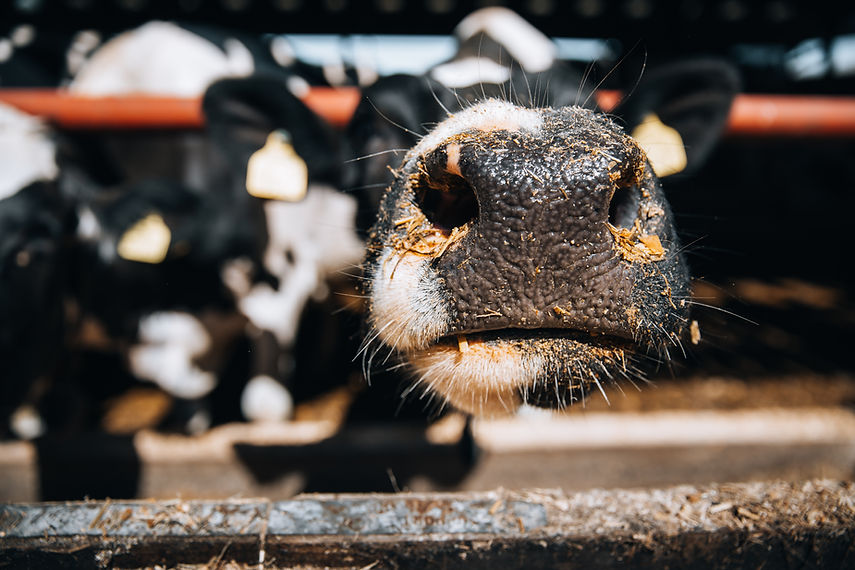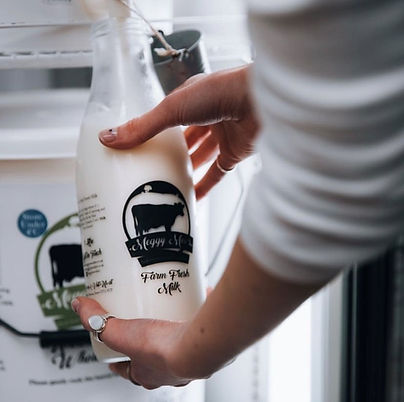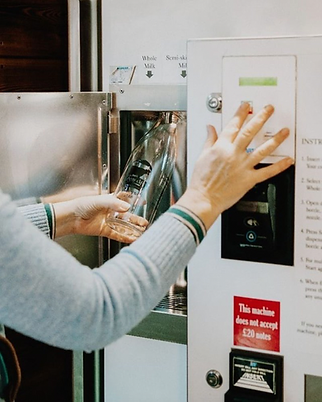
Sustainability and Conscientious Farming
We are mindful of our environmental impact and we try to do things differently where we can to minimise this. We use farming methods and practices that work positively for our cows, our customers and the environment.


REUSE
Our milk vending machine at the farm provides our customers with the option to refill a glass bottle with milk rather than purchase milk bottled in plastic.
Our reusable glass bottles are available in 500ml and 1 litre sizes and can be purchased from our farm shop. We also have over 20 stockists who offer the ability to refill and our glass bottles can also be purchased from these locations. We estimate that between our farm shop and the refill locations, in excess of 75,000 plastic bottles are saved from our recycling bins or landfill each year.
We can also supply larger volumes of milk to wholesale customers in a reusable milk pail. With varying capacities of 5,10 and 15 litres and a convenient tap for easy dispensing, in a commercial environment these pails can help a business to dramatically reduce the amount of plastic waste entering the recycling system.
RECYCLE
Water is our most crucial resource and we reuse and recycle as much water as possible to make every drop count. For example, water that is used to cool our milk after pasteurisation is reused to clean the robotic milkers and then used again, to irrigate fields.
We use a heat recovery system to heat our water. This system collects the waste heat produced by the compressors on our refrigeration systems and utilises this in heating a tank of water.

RENEWABLE ENERGY
We have installed a 50kw solar panel system on the roof of our barn, with plans to extend this further in 2023. We use the power generated by this to run the robots, our pasteurisers and other dairy equipment.
Park Farm is also home to a 22-acre solar park. There are 18,000 panels in the park which produce enough electricity each year to supply 800-850 homes. In the summer months, we graze sheep under the panels and the park is also home to several beehives and owl boxes.

REDUCING FOOD WASTE
To minimise waste, we produce all our products order but it does require a fair amount of forecasting to be able to do so. Generally, our crystal ball is pretty reliable and we are able to match our production with the needs of our customers fairly well. However, sometimes we do over-estimate and when we do, we hate to see it go to waste.
We are a member of Too Good to Go. This app provides customers with the opportunity to purchase unsold, surplus food at a fraction of the retail value and provides us and many other businesses across the world with an alternative to throwing away surplus food.
CROP ROTATION
Crop rotation is a tried and tested method of keeping soil rich and fertile.
Some crops take more from the soil than others while some actually add nutrients. For these reasons, we use a traditional crop rotation plan to maintain or improve soil fertility.
Every year, we plan our crops in a pattern. This aims to ensure that the crops planted each season replenish the nutrients that were absorbed by the previous crop.
.png)
.png)